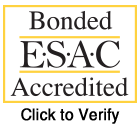Investors choosing to ‘do good’ through ESG investing assume (and trust) that the fund has done its due diligence on the companies represented. However, investors are becoming more aware of companies that ‘look good’ but are not practicing advocates for what ESG stands for. When companies are insincere about their ESG compliance, it creates a business risk that results in loss of capital, employees, and the investing public’s trust.
“According to research last year, investors who signed onto the United Nations principles did not improve the social and environmental performance of their investments. According to the researchers, signatories “use the PRI status to attract capital without making notable changes to ESG.” Similarly, signatories to the Business Roundtable statement have performed no better than other companies in protecting jobs and worker safety during the pandemic.”- An ESG Reckoning Is Coming, Harvard Business Review.

The research also concludes that ESG funds see an uptick of capital upon signing the United Nations principles proving that the public notices of the funds’ commitment to PRI. But, the public is also aware of how the fund companies represented deal with their own environmental, social, and governance. How can funds be held accountable?
Following through on ESG commitments comes down to compliance at the fund and companies represented. The six Principles for Responsible Investment offers a menu of possible actions for incorporating ESG issues into investment practice to ensure each fund company’s fiduciary responsibilities:
PRINCIPLE 1- Incorporate ESG issues into investment analysis and decision-making processes.
PRINCIPLE 2- Be active owners and incorporate ESG issues into ownership policies and practices.
PRINCIPLE 3- Seek appropriate disclosure on ESG issues by the entities we invest in.
PRINCIPLE- 4 Promote acceptance and implementation of the Principles within the investment industry.
PRINCIPLE 5- Work together to enhance our effectiveness in implementing the Principles.
PRINCIPLE 6- Each report on our activities and progress towards implementing the Principles.
For funds with several ESG compliance risks, working with a PEO that implements solutions to ethics and governance issues quickly can tackle more significant problems, such as environmental, through multi-year planning. Often, ESG funds must rely on the PEO to look inward by conducting corporate governance compliance assessments, distributing culture surveys, examining the conflict of interest platforms, providing corporate training, and accessing other organization-related initiatives.

Monitoring compliance and practicing a greater sensitivity toward inclusion and quality to create a fair society can be addressed by working with a third-party PEO to help build resilience into the asset management industry to lead with a purpose and create a better future for all.






